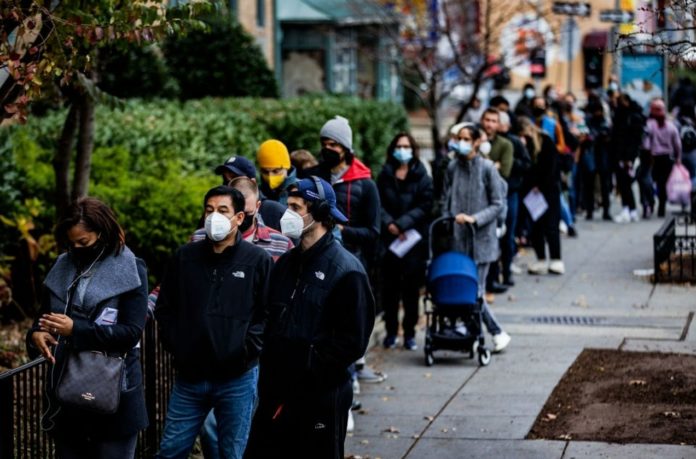Instead of a one-size-fits-all strategy, researchers propose that developers customize vaccines based on a person’s infection history.
According to this research, a person’s previous COVID infections will influence their immune response to future virus infections.
Immune imprinting refers to the process by which the first SARS-CoV-2 spike protein a person receives – either through vaccination or infection – alters their immune system’s ability to protect against mutations and also influences the rate at which their immunity waned.
This may have an effect on the future development of coronavirus vaccines.
Rather than using a one-size-fits-all approach, experts suggest that developers may adapt vaccines to an individual’s infection history.
Professor Rosemary Boyton of Imperial College London’s Department of Infectious Disease explained: “Our first encounter with spike antigen either through infection or vaccination shapes our subsequent pattern of immunity through immune imprinting.
“Exposure to different spike proteins can result in reduced or enhanced responses to variants further down the line.
“This has important implications for future proofing vaccine design and dosing strategies.”
Although antibody levels decline over time following infection or vaccination, this new research demonstrates that an individual’s protective immune responses are also influenced by the strain or combination of strains to which they were exposed.
Professor Danny Altmann of Imperial’s Department of Immunology and Inflammation stated: “We’ve recently had some very large studies making the point that vaccine immunity wanes quite rapidly.
“This leaves us vulnerable to Delta breakthroughs, and protection can generally be rescued by a third dose.
“This study now offers considerable new detail about who is susceptible and when.
“You can be someone who made a great response to the vaccine and still fall prey to Delta breakthrough if you haven’t had a booster.”
He further added: “The really surprising news was finding that people infected with the Alpha variant had such different patterns and waning of immunity to other variants.
“Immune imprinting means we’re now all walking around programmed slightly differently for our future protection.”
The study was undertaken prior to the appearance of the Omicron strain, and the researchers noted that there was still insufficient data on the new strain of concern to draw any conclusions.
Prof Altmann stated that he and his colleagues were optimistic that the current crop of vaccines will provide adequate protection against the Omicron strain, despite the spike protein’s many changes.
He said: “I’m still kind of terrified by them.
“But I’m also kind of calmed by the on the ground data, saying that it looks like they’re in a country of fairly low vaccination uptake.
“Vaccines are holding up to some extent against it. And I think what it means for this country, I think it would kind of calm down, because the jury’s out.
“We’ve got a high level of vaccination and we don’t know if it can displace Delta.
“Currently, with the Omicron variant emerging, it’s vital that people get their booster vaccines.
“But in the future, we should consider how we can create vaccines that broaden our immune response even more to protect against other new variants of concern.”
Source: 10.1126/science.abm0811
Image Credit: Getty
You were reading: First COVID infection or vaccine decides future immune responses
